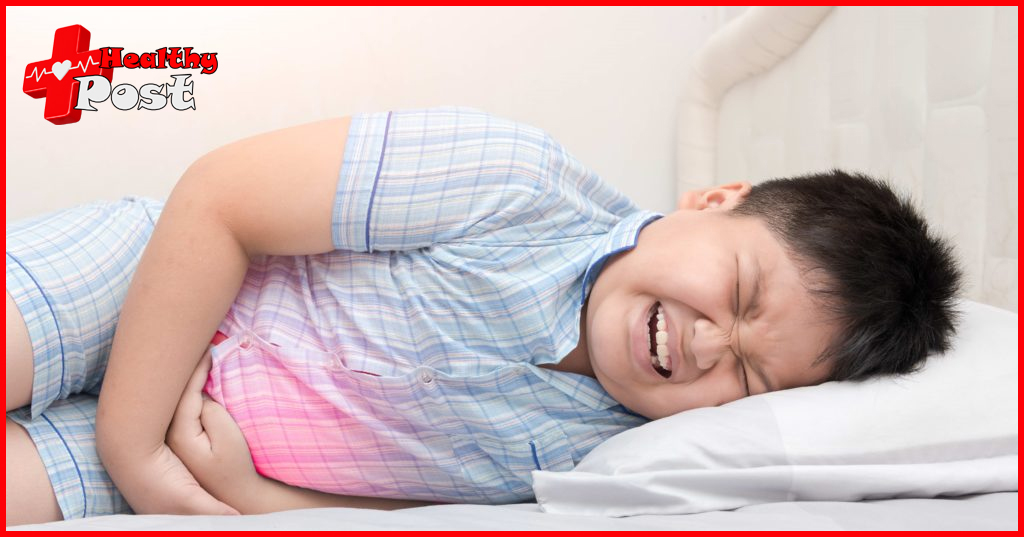
If a child’s stomachache never goes away, is it probably because he is pretending?
In daily life, stomachache is very common in children. There are many reasons for this, such as constipation, bloating, acute gastroenteritis, intestinal cramps, etc., which may cause abdominal pain in children. Most of these are not very serious problems, but there are some situations that require attention.
Today, let’s take parents to understand the common causes of stomachache in children and when they need to see a doctor.
01. If your child always complains of stomach pain before an exam, it may be functional abdominal pain
If your child always feels nauseous before a big exam, feels uncomfortable in his stomach when hearing bad news, or always has sudden “stomach pain” before going to school, don’t rush to think that he is “faking illness”. Perhaps your child is suffering from “functional abdominal pain.”

Functional abdominal pain is a functional gastrointestinal disease with abdominal pain as the main symptom. The abdominal pain is not severe and does not last long. In addition, all physical examination indicators are normal. After examination, there is no hidden bleeding in the stool. At the same time, there are no symptoms that deserve warning, such as weight loss without deliberate weight loss, unexplained fever, severe vomiting, etc., then it may be related to functional abdominal pain.
Data show that 10%-20% of children will experience functional abdominal pain. The causes of this condition may be related to the child’s mental stress (anxiety, depression, etc.), eating habits (allergies to lactose, wheat, sorbitol, etc.), and insufficient gastrointestinal motility.
Functional abdominal pain is generally not life-threatening, but it will affect the child’s quality of life, and persistent abdominal pain will also have an adverse effect on the child’s mental health.
If your child has persistent abdominal pain, you can consider doing some tests to rule out organic diseases , such as:
Abdominal ultrasound or CT scan : Check the structure of the gastrointestinal tract.
Blood and urine tests : to rule out other diseases.
Colonoscopy : An examination of the inside of the intestines.
If no organic lesions are found after a series of examinations, the following methods can be tried to help the child overcome functional abdominal pain
1. Psychotherapy :
In addition to helping children maintain a normal study life and overcome the effects of anxiety and stress, parents should also realize that functional abdominal pain is real and is not something that children fabricate to avoid certain academic or interpersonal pressures.
2. Behavior correction :
Observe whether certain behaviors will inadvertently strengthen the child’s pain symptoms. For example, if you observe that the child’s functional abdominal pain symptoms are aggravated due to “classes” or “interpersonal relationships”, you can appropriately allow the child to miss classes or engage in other recreational activities.
3. Distract the child :
The main thing is to distract the child from the pain. You can do this through talking, playing games, watching TV, etc., to distract the child and help the child improve his tolerance to pain.
The purpose of treating functional abdominal pain is not to completely eliminate the pain . As the disease progresses and interventions are made, most children’s functional abdominal pain will subside over time. If parents find that their children have this problem, they can seek help from professional doctors or psychologists if necessary.
02. Most abdominal pain is a minor problem, so be careful to distinguish it from acute abdomen
Many times, children’s abdominal pain is a minor problem. Children’s abdominal pain is only intermittent, the pain is tolerable, and can be relieved on its own. There is no fever, and it does not affect diet and sleep. No special intervention is required .
If your abdominal pain comes on suddenly and is difficult to relieve, you need to see a doctor right away.
If the characteristics of abdominal pain change, such as the pain becomes more severe, the pain lasts longer, or the pain affects the child’s normal play, daily life or study. Or if the abdominal pain is accompanied by fever, vomiting, abdominal distension, poor spirits, etc., then you may need to see a doctor for further examination and corresponding treatment. If it involves surgical problems, surgical treatment may also be required [2].
Abdominal pain related to surgical problems often has an acute onset and is very severe. The condition progresses quickly and delayed treatment may be life-threatening. These include appendicitis, intussusception, intestinal malrotation and midgut volvulus, intra-abdominal hernia, intestinal obstruction and ectopic pregnancy. Each disease has its own specific symptoms , and parents need to distinguish them and take their children to see a doctor in time.
Appendicitis :
When the appendix becomes infected and swollen, it is called appendicitis and is the most common indication for emergency abdominal surgery in children [3]. Symptoms are anorexia and pain around the navel in the early stages, pain that moves to the right lower abdomen within 24 hours of the onset of symptoms, right lower abdominal tenderness that progresses over time to vomiting, increased temperature, and further worsening of abdominal pain.
Intussusception :
This is when one section of the intestine is inserted into another section of the intestine. This is the most common cause of intestinal obstruction in children. It is common in children aged 2 months to 2 years and may also cause bloody stools that resemble jelly. It manifests as intermittent severe pain and crying.
Intestinal obstruction :
Typical symptoms of intestinal obstruction include pain, vomiting, abdominal distension, and the absence of flatus or defecation. The pain will become more severe when the child’s abdomen is press. If the child shows pain and refuses to have his or her stomach touch, special attention should be pay.
Intestinal malrotation and midgut volvulus :
They may be lifelong and asymptomatic; in severe cases, they may present with bilious or non-bilious vomiting.
Inguinal hernia or umbilical hernia incarceration :
symptoms include irritability, crying, vomiting, and abdominal distension. When parents cannot find a clear reason for their child’s crying, they need to check whether there are isolate masses in the groin area, scrotum (or labia majora), or navel. If the incarceration of an oblique inguinal hernia is severe or lasts for a long time, it may cause ischemia or necrosis of the intestine or testicles (ovaries for girls).
After the consultation, the doctor will determine whether the hernia can be reduce. If the reduction is successful, elective surgery will be perform to solve the hernia problem. Incarcerated hernias that are not suitable for reduction or that cannot be reduce successfully require emergency surgery.
Ectopic pregnancy :
This condition should be consider in girls with abdominal pain after menarche; delay may be life-threatening.
When children have obvious abdominal pain, further differentiation from appendicitis, intussusception, etc. is need; when children have prolonged abdominal pain or weight loss or other systemic symptoms occur, it may be necessary to rule out the possibility of inflammatory bowel disease, tuberculosis or malignant tumors.
Identifying life-threatening causes that require urgent medical attention is essential, which requires prompt medical attention and urgent evaluation by a physician.

2 thoughts on “If a child’s stomachache never goes away, is it probably because he is pretending?”